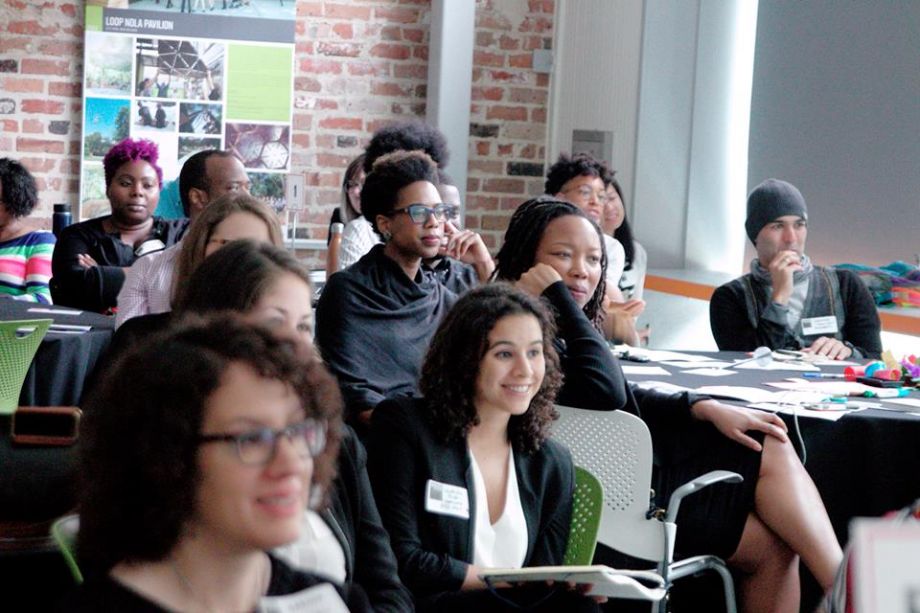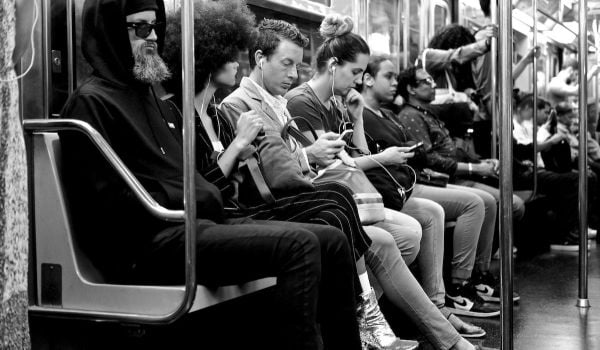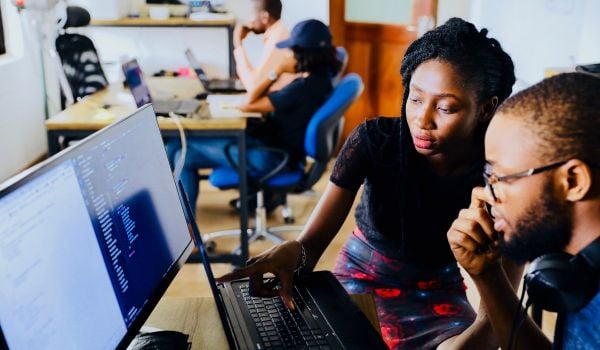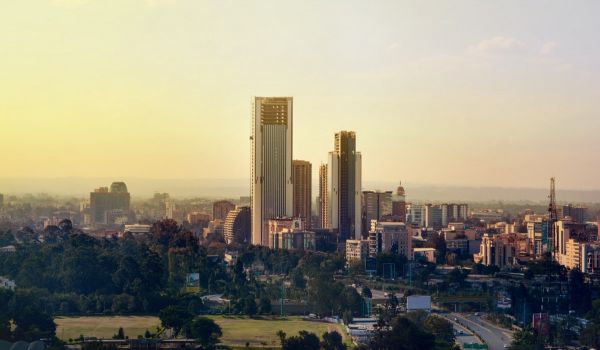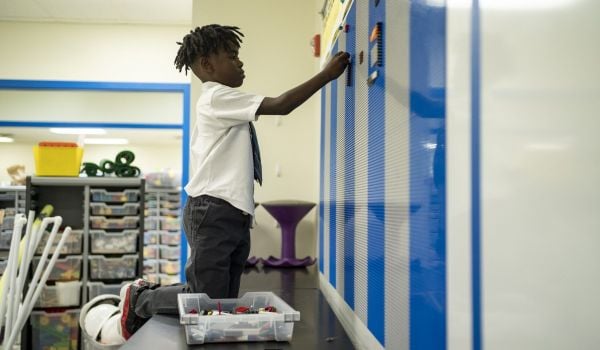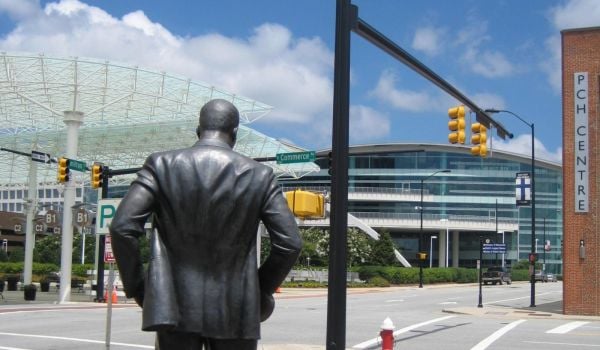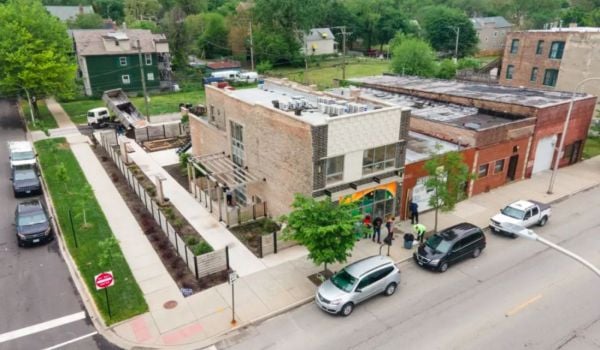When it comes to the urban planning profession, what type of person or background comes to mind?
How about: someone who grew up in a very public service-oriented black family in Joliet, Ill., at time when the city was in sustained economic and physical decline, which exacerbated racial and income inequalities. Someone whose volunteering at a very young age allowed them to see how short the distance was between having a job and home and being without, and made them ask what more could be done.
Or someone who grew up in Brooklyn, N.Y., who, as one of the few fluent English speakers in her black and immigrant family, spent a lot of time having to navigate government institutions on behalf of family members, ingraining a first-hand experience of how race, class, and language can have an impact on how people navigate the built environment.
Or someone who grew up in Indianapolis, Ind., but didn’t really learn until after graduate school about his grandfather’s exploits as a black urban farmer and role in a cooperative that developed affordable for-sale housing in a city segregated legally by race.
That’s just a small slice of a group of peers, colleagues, and friends with whom I’ve journeyed over the past few years in the planning profession. While we recognize that we are hardly representative of the predominantly white, male planning field, in these past few years as a group we have witnessed how conversations about planners among planners has taken a hopeful turn.
Just this year, at the American Planning Association’s National Planning Conference in New Orleans, civil rights icon Angela Glover Blackwell delivered a powerful closing keynote on the importance of equity in planning and design and implored attendees that “we have a moment—don’t lose it.”
In fact, the 2018 National Planning Conference was arguably the most equity-focused edition in recent history, as evidenced by the inaugural Planning for Inclusiveness and Social Justice track of sessions, by open discussions on American Planning Association’s forthcoming Equity in Planning Policy Guide, in addition to and opening and closing keynote conversations that called for planners to have an equity lens.
Yet there is still so much work to do, not only within the communities we each serve as part of the planning profession, but also within our professional community when it comes to advancing racial and economic justice. While communities are diversifying, urbanism is not. The number of practicing urbanists of color has remained relatively stagnant — though it does appear more students of color are pursuing degrees in planning, architecture and landscape architecture.
Given our relatively low numbers, including the voices and expertise of urbanists of color (not to mention resident voices from communities of color) in critical conversations at the local and national levels also remains a significant challenge. It seems that we’ve made progress in terms of talking equity in urbanism, but how do we actually deliver on it in our work and within our ranks? How do we expand the range of voices contributing to the equity conversation and reshaping of urbanism? How do we not lose this moment?
As a grassroots network of designers, policymakers and urban planners of color, we came together in 2016, eventually coming to call ourselves “Spaces and Places.” Our organizing committee includes: Germane Barnes, Antoine Bryant, Nicole H. Bennett, Aldea Coleman, Ifeoma Ebo, Carlton Eley, Sonja Ewing, Amina Hassen, Kristen Jeffers, Dasjon Jordan, Daphne Lundi, Justin Garrett Moore, Catherine Nguyen, Prescott Reavis, Chris Rice, Lynn M. Ross, Shin-Pei Tsay, and Cristina Ungureanu.
We were all looking for discussions during the 2017 National Planning Conference that addressed injustices in communities of color. What started as an exchange on social media turned into a reception and panel discussion on the historical impact of civil and social injustices in communities of color and how public officials can positively impact policies and planning efforts.
We think of ourselves as a group of professionals who have influence and look like those in the communities we hope to help. Professional urban planning and design communities still too often fail to fully recognize or address issues affecting communities of color. But our group still believes in the potential of planning and design to work with communities. To quote my colleague, Ifeoma Ebo, “There is no other more powerful tool to change the direction of society.”
Aldea Coleman echoes this sentiment, adding that during the 2018 National Planning Conference she heard someone say that we can no longer plan cities and communities and talk about the unexpected consequences of planning after the fact — the new standard should be equitable engagement throughout planning processes.
To date, Spaces and Places has hosted two convenings in conjunction with the annual National Planning Conference. Each convening was designed to bring conference attendees, local urbanists and community members together for shared learning and peer exchange. Importantly, these convenings are offered free-of-charge to thanks to a group of committed sponsors and in-kind supporters.
That first gathering, connected to the 2017 National Planning Conference in New York City, featured a discussion on diversity in the urbanism fields, models for self-determination in planning and designing with communities of color, and a collaborative networking workshop to discuss the role of protest and change in America’s cities and regions. Our second gathering, this past April in New Orleans, brought local and national leaders together to celebrate, catalyze and amplify initiatives led by and with communities of color across planning, design and activism.
But the relevancy of urbanism depends upon building a more inclusive field that engages in equitable planning and design not just some of the time, but all of the time. As planners and designers of color, you can and will see us putting in efforts along these lines all year long in our own ways and in our own places. We also recognize that it has taken hundreds of years to get here, meaning that it might take as long to get to a better place.
Anybody else want to go there with us?

Spaces and Places is a grassroots network of urban planners, policymakers, and designers, formed in 2016 to amplify work on the issues affecting communities of color that are too often not fully recognized or addressed by professional urban planning and design communities. To learn more about Spaces and Places, join the Spaces and Places Facebook Group and bookmark the Spaces and Places event page.

